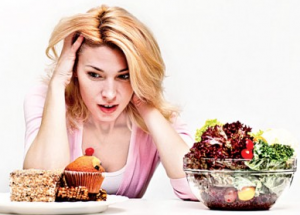Feeding Your Feelings? Ways To Overcome Emotional Eating
 In our food-abundant world, eating has become a way to add pleasure to our lives. We eat to socialise, nurture, express love, have fun, comfort, and reward ourselves.
In our food-abundant world, eating has become a way to add pleasure to our lives. We eat to socialise, nurture, express love, have fun, comfort, and reward ourselves.
Most of us form emotional associations with food at a very young age. Birthday cakes, Easter eggs, Christmas cookies are all associated with special occasions and childhood rewards.
This creates strong psychological bonds between our feelings and our food. We have come to associate high calorie, high fat, sugar-laden food with rewards and finding comfort and happiness.
It is easy to get confused between physiological hunger and emotional hunger. When emotional hunger rumbles, one of its distinguishing characteristics is that we are focused on a particular food, which is likely a comfort food. Emotional hunger comes on suddenly; physical hunger occurs gradually.
While indulging in fatty and sugary foods can provide temporary comfort, the aftermath is usually bleak. Emotional eating can create or intensify emotional distress, including feelings of embarrassment, self-disgust, guilt, and shame. Hence, it becomes a vicious cycle: eating to escape negative feelings precipitates additional emotional eating.
Using food to calm emotions can become an unhealthy coping mechanism when underlying issues desperately need addressing. In the long-term, you may be setting yourself up for weight gain and related health problems.
Are You An Emotional Eater?
- Do you eat more when you’re feeling stressed?
- Do you eat when you’re not hungry?
- Do you eat to feel better when you’re sad, bored, anxious, etc.?
- Do you reward yourself with food?
- Do you feel powerless or out of control around food?
Stress As A Common Cause Of Emotional Eating
In the short term, stress can shut down appetite. A structure in the brain called the hypothalamus produces corticotropin-releasing hormone, which suppresses appetite.
But if stress persists, it’s a different story. The adrenal glands release cortisol, “the stress hormone”, which increases appetite. Cortisol triggers cravings for salty, sweet, and high-fat foods – foods that give you a burst of energy and pleasure. The more uncontrolled stress in your life, the more likely you are to turn to food for emotional relief.
Co-occurring conditions such as depression, anxiety, obsessive-compulsive disorder, post-traumatic stress disorder, can also influence the behaviour of an emotional eater.
How Does Food Affect Mood?
Brain chemicals (neurotransmitters, such as serotonin, dopamine and acetylcholine) influence the way we think, feel and behave. They can be affected by what we’ve eaten.
Fluctuations in blood sugar levels are associated with changes in mood and energy, and are affected by what we eat.
There can be abnormal reactions to artificial chemicals in foods, such as artificial colourings and flavourings.
Food allergies or intolerances can produce symptoms such as anger, irritability, and mood swings.
A Finnish study analysed 230 working women and their eating behaviour over 12 months. The researchers found that women who had job burnout were more likely to turn to food for comfort and stress relief, and to eat uncontrollably, compared with women who weren’t overworked.
Neuroscientists at Columbia University Medical Centre found some brain patterns that may explain the causes of emotional eating. The researchers noticed excessive blood flow to areas in the brain that regulate the emotional control of food intake. When the hormone leptin was injected to volunteers the brain response changed. When they saw food, there was more activity in brain areas associated with conscious decisions.
Leptin signals the brain; when there’s a deficiency of the hormone, the areas of the brain associated with reward-seeking become more active.
The signal appears to be a primal emotional trigger when food was scarce. It was the brain’s way of telling the body to seek food and protect fat stores.
We are so passionate about salt, fat and sugar because of their relative scarcity in nature.
Low levels of vitamins, minerals and essential fatty acids can affect mental health. For example, links have been demonstrated between low levels of certain B-vitamins and symptoms of depression, low levels of the mineral zinc and eating disorders, and low levels of omega-3 oils and depression and anxiety.
Emed’s Nutrient Status Profile and Essential Fatty Acids Test can help you identify those deficiencies at early stage and help you prevent you a cascade of events that will affect your overall health.
Various brain chemicals that are responsible for our emotions also provide a foundation for why and what we eat at certain times.
These chemicals include serotonin, norepinephrine, dopamine, and GABA. Finding out your neurotransmitter levels through the Emed’s Neurotransmitter Profile will help to determine the most effective way to support your mood in future.
How to put emotions and food in separate corners?
Emotional eating is not a life sentence.
By being aware of when you are actually eating emotionally, choosing other actions instead, and continuing despite setbacks, you are developing new skills and setting yourself up for long-term success.
- Recognise the trigger. Every time you get the urge to eat, record it in your journal. Write down how you were feeling, what happened during the day, where you were when the urge hit, and any other infor- mation you may find useful in identifying your triggers.
- Take a couple of deep breaths, pause, and listen to your body. Your physical sensations can be a telling sign for whether or not you are being triggered to eat emotionally, or if your body is experiencing true hunger.
- Focus on your food. When you’re eating, pay attention to what you’re eating.
- Find a healthy (non-food) alternative. Understanding our emotions helps us make smarter food choices. Take a bath, go for a walk, read a good book, call a friend.
- If stress contributes to your emotional eating, try a stress management technique, such as yoga, meditation, Tai Chi or massage.
- Exercise or hobbies are other healthier options, and may service to boost mood and fight boredom that can sometimes lead to emotional eating.
- Get enough sleep.
 Conquering Your Emotions By Controlling Your Diet
Conquering Your Emotions By Controlling Your Diet
The nutrients and food-based chemicals in the food we eat can influence both structure and function of nerve cells as well as the neurotransmitters that make them work.
As much as our moods can dictate the foods we eat, the foods we eat can dictate our moods.
- Follow a gluten free diet. Gluten, a protein found in grains such as wheat, rye and barley, may negatively impact mood and brain health
- Keep a food diary: monitoring what you eat, how much you eat, when you eat, where you eat, and how you’re feeling when you eat has been shown to be very beneficial in reducing unhealthy eating habits.
- Cut the sugar! Sugar can lead to fluctuations in blood sugar, which can bring on mood swings. Sugar contribute to insulin and leptin resistance and impaired signalling, which play a significant role in your mental health
- Avoid processed foods. Aside from sugar and gluten, they may also contain trans fats, artificial colours, MSG, artificial sweeteners and other synthetic ingredients linked to irritability and poor mood.
- Omega-3 fatty acids, found in fish, have been shown to combat depression and boost mood
- Nourishing your gut health with good quality probiotics is essential to maintaining a positive mood. Neurotransmitters like serotonin, “the happiness hormone” can be found not just in your brain, but also in your gut.
- Reduce carb intake and increase high-quality sources of protein (grass fed meat, organic eggs/ chicken, fish, legumes, fresh nuts/seeds) helps to keep your blood sugar levels steady for enhanced energy and mood.
- Focus on your food. Before you take a bite, it is a good idea to make sure that you are truly hungry
- Eat slow and relaxed. This will give you more time to chew the food, mix it with enzymes from the saliva and improve your overall digestion by giving the brain more time to keep up with the peptide signals that tell you when you have eaten enough
- Do not skip meals and especially breakfast. Eating a healthy breakfast sets the stage and decreases your afternoon cravings for those not-so-good-for-you snacks.
Further reading:
- 12 Foods That Lift Your Moods
- Why You May Be Wheat Intolerant and Not Even Know It
- Mindfulness Meditation – Live In The Moment And Beat Stress
- Tasty Gluten Free Recipes
References:
N. Nevanperä, et al. 2012, Occupational burnout, eating behavior, and weight among working women, The American Journal Of Clinical Nutrition, N. Nevanperä, et al. http://ajcn.nutrition.org/content/early/2012/02/28/ajcn.111.014191.abstract
Rosenbaum et al., 2008, Leptin reverses weight loss–induced changes in regional neural activity responses to visual food stimuli, J Clin Invest. 2008, July 1; 118(7): 2583–2591





